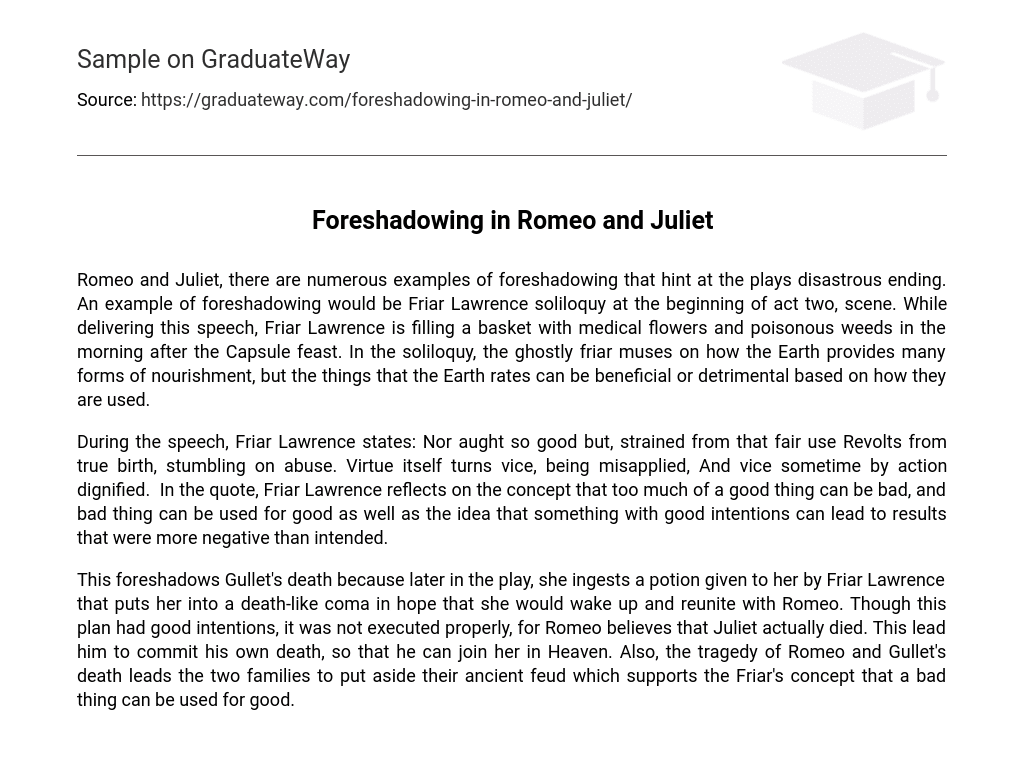Romeo and Juliet, there are numerous examples of foreshadowing that hint at the plays disastrous ending. An example of foreshadowing would be Friar Lawrence soliloquy at the beginning of act two, scene. While delivering this speech, Friar Lawrence is filling a basket with medical flowers and poisonous weeds in the morning after the Capsule feast. In the soliloquy, the ghostly friar muses on how the Earth provides many forms of nourishment, but the things that the Earth rates can be beneficial or detrimental based on how they are used.
During the speech, Friar Lawrence states: Nor aught so good but, strained from that fair use Revolts from true birth, stumbling on abuse. Virtue itself turns vice, being misapplied, And vice sometime by action dignified. In the quote, Friar Lawrence reflects on the concept that too much of a good thing can be bad, and bad thing can be used for good as well as the idea that something with good intentions can lead to results that were more negative than intended.
This foreshadows Gullet’s death because later in the play, she ingests a potion given to her by Friar Lawrence that puts her into a death-like coma in hope that she would wake up and reunite with Romeo. Though this plan had good intentions, it was not executed properly, for Romeo believes that Juliet actually died. This lead him to commit his own death, so that he can join her in Heaven. Also, the tragedy of Romeo and Gullet’s death leads the two families to put aside their ancient feud which supports the Friar’s concept that a bad thing can be used for good.





